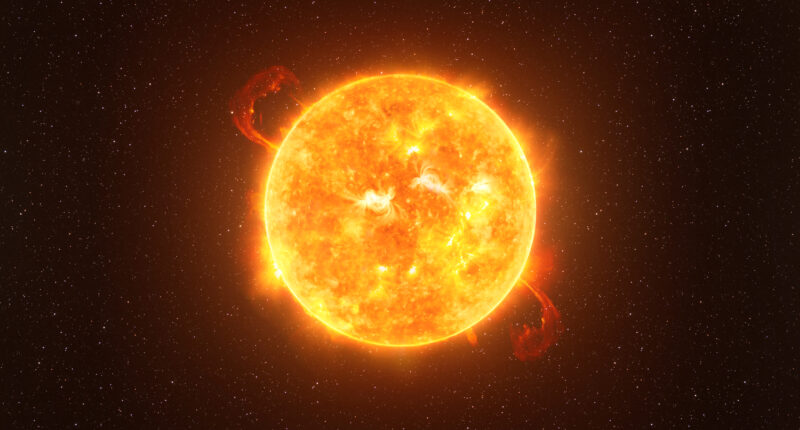RESEARCHERS have claimed that one of Earth’s closest star neighbors may explode within our lifetime.
A new unpublished study, which is not yet peer-reviewed, posits that Betelgeuse might soon explode in a giant supernova.
Betelgeuse is a red supergiant star in the constellation Orion the Hunter, located 642.5 light years from Earth.
It is one of the brightest stars in the night sky – in fact, it’s the tenth brightest star visible to the naked eye.
Now, a newly completed study, led by Hideyuki Saio of Japan’s Tohoku University, suggests that Betelgeuse is in the late stages of its life.
“We conclude that Betelgeuse should currently be in a late phase (or near the end) of the core carbon burning,” the paper notes.
“After carbon is exhausted in the core, a core-collapse leading to a supernova explosion is expected in a few tens [of] years.”
The team said it assessed oscillations that suggest Betelgeuse’s brightness has been decreasing at an accelerating rate in recent years.
If Saio and his team’s hypothesis is correct, this means the large star might explode into a supernova within our lifetime.
A supernova is a violent explosion that comes at the end of a star’s lifecycle.
Most read in Tech
Essentially, this occurs when red supergiants run out of fuel, causing them to collapse within themselves.
When this happens, a star’s luminosity increases to millions of times its normal level, causing it to shine brighter than its entire host galaxy.
“Although we cannot determine exactly how much carbon remains right now, our evolution models suggest that the carbon exhaustion would occur in less than 300 years,” Saio writes.
“After the carbon exhaustion, fusions of further heavier elements would occur in probably a few tens of years, and after that the central part would collapse and a supernova explosion would occur.”
Still, it’s important to note that most astronomers believe Betelgeuse is younger, therefore, do not think the star will explode anytime soon.
But should Saio’s prediction pan out, stargazers would behold an incredible sight.
Betelgeuse would light up the night sky – and even be visible in the daytime – with luminosity as bright as the moon.
It would shine bright for several weeks or even months before fading from Orion’s constellation forever.









